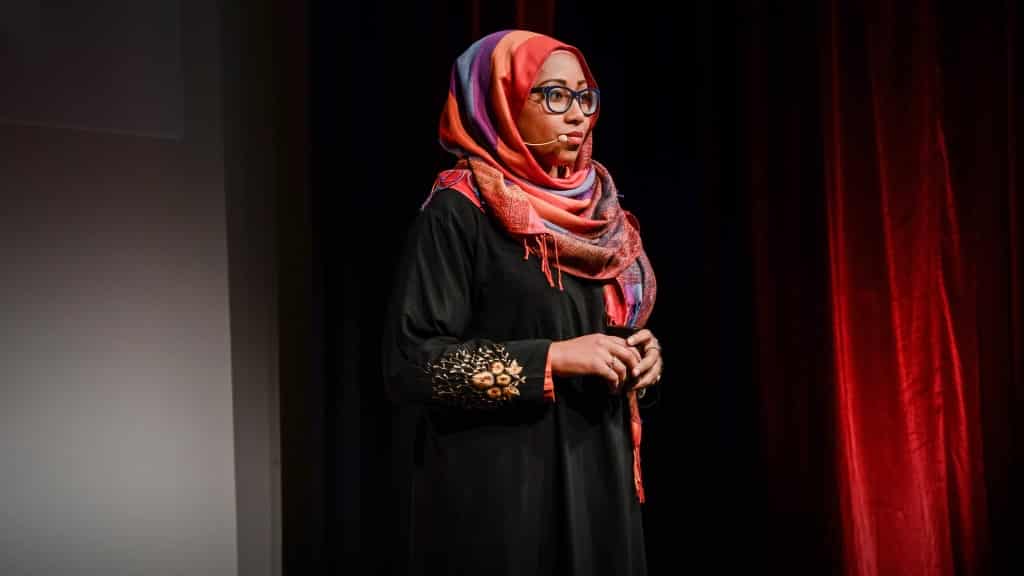As humans, we are instructed to avoid sins, yet we may sometimes falter. When we do, what steps should we take? Are we condemned for our missteps, or is there a path to redemption and forgiveness?
In this article, we will explore how Allah forgives all sins and how you can seek His forgiveness. We will also discuss the actions and attitudes to avoid, ensuring you keep the door to Allah’s mercy wide open. Discover the path to redemption and understand how to earn Allah’s forgiveness, regardless of your past mistakes.
Here we will learn the following:
- What is a sin In Islam?
- Types of Sin in Islam
- How to earn Allah’s forgiveness?
- Will Allah forgive me?
- Who does Allah forgive?
- Conditions of repentance
- Will Allah forgive me for major sins?
- Will Allah Forgive Me for Repeated Sins?
- How to Deal with Sins related to others?
- Forgive Me, Allah, For I Have Sinned:
What is a sin In Islam?
In Islam, a sin is defined as disobedience to Allah (God), our Lord and Master, the Lord of the worlds. It is a conscious choice to deviate from the path He has ordained for us.
No Original Sin in Islam
One crucial concept to understand is that in Islam, there is no belief in “Original Sin.” We are not born with inherited sin; instead, sin is a result of individual choices, and everyone is responsible for their own actions. This principle is clearly stated in the Quran:
“No soul carries the guilt burden of another.” (Surah Fatir – 18)
Personal Responsibility for Sin
Our sins are our own, not inherited from past generations. The sins of those who lived ages ago, whether Adam or Iblis (Satan), are their own, just as our sins are our own. While we do not inherit sin, we can learn valuable lessons from these early transgressions to understand the nature of sin and the path to redemption.
Forgiveness and Unforgivable Sins
In Islam, some sins can be forgiven by Allah, while others cannot. The story of Adam illustrates that Allah is merciful and forgives those who repent.
Thus, understanding sin in Islam emphasizes personal responsibility and the importance of following Allah’s guidance. Recognizing that we are accountable for our own actions helps us strive towards righteousness and seek forgiveness for our mistakes.
The Two Types of Sin in Islam
Both Adam and Iblis (Satan) sinned, but the nature of their sins and their reactions to them were fundamentally different. Their attitudes towards Allah made all the difference.
Sin out of Arrogance
Iblis’ greatest problem was not just that he sinned by disobeying his Creator’s command, but that he defied Allah out of arrogance, hatred, and envy. He refused to acknowledge his mistake, repent, or seek forgiveness. This defiance and lack of remorse defined his sin.
Sin out of Weakness
In contrast, Adam’s sin stemmed from his own weakness and the seduction of his enemy. While this does not make his sin any less significant, it crucially influenced his reaction to it. As soon as Adam and his wife realized they had sinned, they immediately admitted their wrongs to Allah. They acknowledged their mistakes with remorse and regret and sought forgiveness from the Almighty, showing their sincere intention to never disobey again.
“They said, “Our Lord, we have wronged ourselves, and if You do not forgive us and have mercy upon us, we will surely be among the losers.” [Quran 7:23]
Understanding the difference between sinning out of arrogance and sinning out of weakness highlights the importance of humility and repentance in Islam. Allah’s mercy is always available to those who sincerely repent and seek His forgiveness.
How to earn Allah’s forgiveness?
They asked for His forgiveness, and they were forgiven! Just like that? Yes! It’s as simple as that! They knew that no matter how grave a sin is, Allah is always greater and his mercy engulfed everything. The way to earn it is by simply returning to Him and proving genuine sincerity.
Our existence doesn’t revolve around sin. We sin, but sin is not our identity. Rather, struggling against sin is what refines our identity, faith, perseverance, and commitment to Allah. Nothing is greater than Allah, nothing is impossible for Allah, and His mercy is vaster than we could ever imagine –Glorified is He!
Will Allah forgive me?
Yes, Allah will forgive you if you repent. Allah forgives those who return to Him with sincerity.
The Story of Two Sinners
Two individuals sinned; one was forgiven, and the other was condemned. Allah shares their story to teach us important lessons: His forgiveness encompasses all sins, and His mercy engulfs everything. Importantly, He also shows us the way to seek His forgiveness. Now that you know, you have the key to your redemption.
Steps to Repentance
If you ever slip and fall, know that redemption is within your reach. It’s as simple as admitting your wrongdoing, asking Allah for His forgiveness, and demonstrating sincerity by repenting and performing good deeds with your heart and actions.
“[Almighty God said:] My punishment – I afflict with it whom I will, but My mercy encompasses all things. So I will decree it [especially] for those who fear Me and give zakāh and those who believe in Our signs.” Surah Al-A’raf – 156
Understanding Allah’s Forgiveness
Allah knows you intimately, so strive to know Him. We are not programmed to love and obey our Creator without choice. By choosing Him over anything else and committing to His path despite struggles and temptations, we prove our faith and sincerity.
A Personal Relationship with Allah
As long as you seek Allah, learn from Him, and remain steadfast in your devotion, He will forgive you. He knows each of us intimately. He is closer to you than the screen you’re looking at right now.
No one understands your heart like the One who created it. No one shows you mercy like the Origin of all Mercy. He has been with you every second from your creation to the grave and beyond. He named Himself The Oft-Forgiving, The Concealer of faults.
Repentance in Islam is a path to forgiveness and mercy from Allah. By acknowledging your sins, seeking His forgiveness, and committing to righteous actions, you open the door to His immense mercy. Embrace this opportunity to renew your faith and strengthen your relationship with Allah.
Forgiveness is the promise of Allah
Allah the Almighty urgues the believers to seek forgiveness saying in the Qudsi hadith:
O Son of Adam, as long as you invoke Me and ask of Me, I shall forgive you for what you have done, and I shall not mind. ”
[nawawi]
Also, in the Quran Almighty God confirms:
O My servants, who have transgressed against themselves, do not despair of the mercy of Allah. Indeed, Allah forgives all sins. Indeed, it is He who is the Forgiving, the Merciful.”
Surah Az-Zumar – 53
Who does Allah forgive?
Allah forgives those who return to him, repent sincerely, and turn their lives around to do good deeds after they did bad ones.
Conditions of repentance
The conditions of repentance in Islam are:
- Stop Doing the Sin: Cease the sinful behavior immediately.
- Regret What You Have Done: Feel sincere remorse for the sin committed.
- Resolve Not to Return to It: Make a firm intention to avoid repeating the sin in the future.
Will Allah Forgive Me for Watching Bad Things?
Yes, if you stop watching such content, genuinely regret doing so, and resolve never to return to it, Allah will forgive you.
Will Allah Forgive Me for Not Praying?
Yes, Allah will forgive you if you repent by stopping the neglect of prayers, feeling sincere regret, and committing to establish your prayers regularly.
Will Allah Forgive Me for Zina (Adultery)?
Yes, Allah will forgive you if you repent by ceasing the act, expressing genuine remorse, and resolving never to engage in such behavior again.
Will Allah Forgive Me for Drinking Alcohol?
Yes, if you stop drinking alcohol, sincerely regret having done so, and resolve to abstain from it in the future, Allah will forgive you.
In all cases, fulfilling the conditions of repentance is key to receiving Allah’s forgiveness.
Will Allah forgive me for major sins?
Yes, Allah can forgive major sins if you sincerely repent. There is no sin too great for His forgiveness. Allah is the Oft-Forgiving and the Most Merciful.
However, it’s crucial to understand that without repentance, major sins remain subject to Allah’s will. Forgiveness is not guaranteed without genuine repentance, and your judgment will be a personal matter between you and Allah. Reflect on your life and consider the consequences of living without repentance.
Furthermore, certain sins are deemed unforgivable if one dies without repenting. These include sins of defiance and associating partners with Allah, as exemplified by Iblis. Without repentance, these serious transgressions remain unforgiven.
Repent sincerely, and seek Allah’s forgiveness, for He is always ready to pardon those who turn to Him with a sincere heart. Allah Almighty says:
“Indeed, Allah does not forgive associating with Him, yet He forgives anything less than that for whomever He wills.”
Surah An-Nisa – 48
So, repent to Him. Confess your wrongs to Him. You don’t need to confess it to anyone else. Allah is closer to you than your own veins, and He sees you, hears you, and knows what’s in your heart. So confess to Him! Ask Him! Be honest with Him!
Then return back to Him.
Will Allah Forgive Me for Repeated Sins?
Yes, Allah can forgive repeated sins. Never lose hope, regardless of how often you stumble. The sincerity and resolve in your heart are what matter most. Even if you fall into sin again, return to Allah and seek His forgiveness.
Allah does not burden us beyond our capacity and does not demand certainty about the future, which is unknown to us. His mercy is always available to those who submit to Him, seek His forgiveness, and cast aside arrogance and ego.
No matter how many times you fall, keep hope alive. You can always return and ask for Allah’s forgiveness, as He is the Ever-Hearing and the Ever-Forgiving.
Beware of Iblis’ Trap
Be cautious not to let the devil deceive you into believing you can manipulate Allah. Repentance must be sincere. If you repent but continue to plan to commit the sin again, thinking you can simply repent afterward, remember that Allah cannot be deceived. You are only deceiving yourself.
Learn from the example of Iblis and do not let him lead you astray as he did with your ancestors. Balance your hope in Allah’s mercy with awareness of His severe punishment.
How to Deal with Sins related to others?
For sins involving other people, an additional condition for repentance is required besides the three conditions earlier mentioned:
- Stop Doing the Sin: Cease the sinful behavior immediately.
- Regret What You Have Done: Feel sincere remorse for the sin committed.
- Resolve Not to Return to It: Make a firm intention to avoid repeating the sin in the future.
- Make Amends to Those You Have Wronged: Seek their forgiveness and make reparations if possible.
This condition varies based on the situation. If the individuals are unreachable or unwilling to forgive, do what you can and show sincerity in your repentance. Rely on Allah, and He will respond accordingly. Following are some examples of sins related to others:
Will Allah Forgive Me for Backbiting?
Yes, if you repent by stopping the backbiting, expressing sincere regret, and seeking forgiveness from those you have harmed, Allah will forgive you.
Will Allah Forgive Me for Hurting Someone?
Yes, Allah will forgive you if you stop causing harm, genuinely regret your actions, make amends with the person you hurt, and commit to not repeating the offense.
Will Allah Forgive Me for Disrespecting My Parents?
Yes, if you repent by ceasing any disrespectful behavior, sincerely regret your actions, and seek forgiveness from your parents, Allah will forgive you.
Forgive Me, Allah, For I Have Sinned:
Seeking forgiveness from Allah (God) is a matter of turning to Him with sincerity. No matter the sin, Allah’s mercy is always near, and His forgiveness is readily available. Those who despair after committing sins miss the profound truth: Allah’s forgiveness is within reach. Simply ask Him, and He will respond.
Steps to Earn Allah’s Forgiveness:
- Acknowledge Your Wrongs: Admit your sins to Allah.
- Feel Regret: Experience genuine remorse without falling into despair.
- Resolve Not to Repeat the Sin: Make a firm commitment to avoid the sin in the future.
- Seek Allah’s Mercy: Keep striving to improve and return to Allah whenever you falter.
Remember, Allah’s door is always open. Even if you stumble repeatedly, return to Allah with sincerity. As you raise your hands in prayer, say, “Forgive me, Allah, for I have sinned.”
“Who can forgive sins except Allah?” [Quran, 3:135]
Only Allah can forgive sins. For further understanding, read our article: The Original Sin In Islam – Who Sinned First?
















